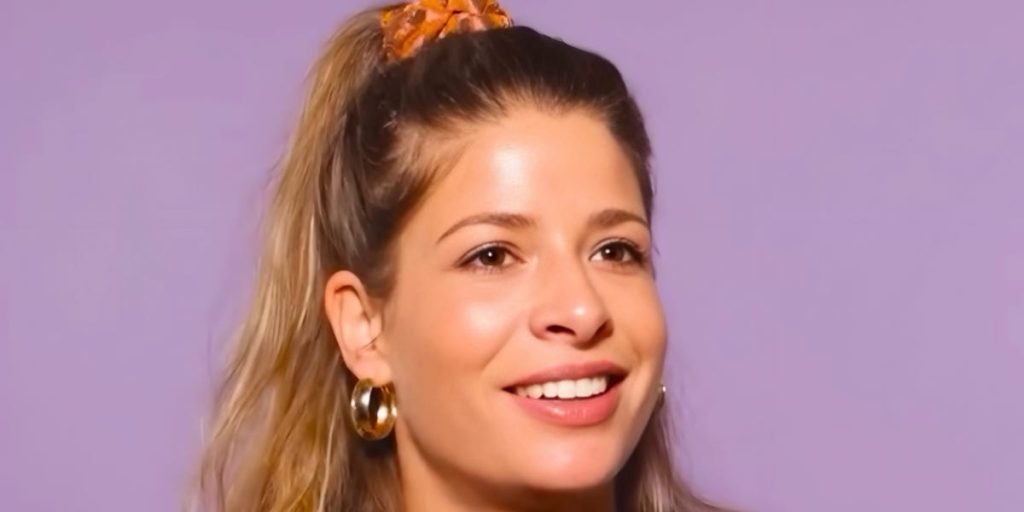What will the next wave of social networks look like?
A string of investors and startup founders is betting AI can provide the answer.
Clara Gold, a French startup founder, is one of them. Her startup, Gigi, recently pivoted from building an AI-powered dating app to a professional networking platform.
Gigi is focused on helping people meet compatible new professional connections. Gold said a problem she noticed was that on LinkedIn, a connection wasn’t always a sure sign that two people had a strong enough relationship for one to make an introduction or reference check.
Gold thinks AI can help here. The startup employs user-provided data, such as access to people’s calendars, to understand who people are meeting with regularly and to determine someone’s degree of connection.
“You connect your calendar because we believe that this is the only source of truth when it comes to the people you actually know,” Gold told Business Insider.
The startup says it uses AI to glean context about people’s connections and projects they’re working on, as well as what they’re trying to connect over, such as hiring or fundraising. Gigi then makes recommendations on who to meet.
Related stories
For example, if one of your friends has a meeting with someone who could be a relevant connection for you, Gigi will prompt your friend to connect the two of you, Gold said.
The platform’s AI will also recommend people based on users’ needs and connections and prompt an introduction if it finds a fit.
Screenshot/Gigi
Gigi launched an invite-only beta of its product in September, which is available in the US and Europe. It plans to expand its availability in 2026.
The startup recently closed a $3 million investment led by Khosla Ventures. The fresh capital will be used to hire engineering talent in San Francisco, cover large language model costs, and advance the product. It brings Gigi’s total funding to $8 million. Other investors include Sequoia Capital, OpenAI, and Monashees.
Adina Tecklu, a partner at Khosla, told Business Insider that she was “compelled” by Gold as a founder and that the firm had been interested in what the next LinkedIn would be.
Gigi’s not alone in trying to take on LinkedIn. OpenAI is building a hiring platform, for instance. Other startups building AI professional networking tools have been gaining traction in the tech industry for helping people find and maintain professional connections. There’s Boardy, an “AI superconnector” people can talk to over the phone that makes introductions over email; Series, a startup founded by Yale students that introduces young professionals over text; or Happenstance, an AI search engine for finding professional connections.
Gigi
One hurdle: These new apps often require users to provide a lot of data (such as access to their contacts or calendar) and trust in an AI agent.
Gold knows this is a “big ask,” she said. The startup’s earliest adopters are in the tech crowd, and Gold wants to attract more young people starting out their careers — two groups that may be more inclined to try out new tech.
Ditching dating apps
Prior to launching Gigi as a professional networking tool, Gold built two different AI products. The first was Ava, an AI chatbot character, which Gold launched in 2023. In 2024, she pivoted to building a dating app, rebranding as Gigi.
Gigi’s schtick as a dating app was that it acted as an AI wingwoman for users. The app used AI to learn more context about its users and then recommend matches accordingly.
But Gold said it became “very frustrating” to build a product that, if it worked, would eventually be deleted. This is the case for many dating apps. Look no further than dating app giant Hinge’s own slogan: “Designed to be deleted.”
However, her concerns about building a dating app went deeper than product retention. Gold said she “started to really doubt our ability as human beings to find love online.”
“It was really depressing because you’re trying to build a product and say, ‘Hey, it’s going to be better, trust us,'” Gold said, but at the end of the day, no matter how good a match someone was by the data, things like someone’s looks often carried more weight.
Gold added that since she is in a relationship herself, she felt disconnected from the user experience of being single in the current dating landscape.
“I do believe that someone is going to crack it, don’t get me wrong,” she said. “Someone’s going to be way better than me to do this.”


